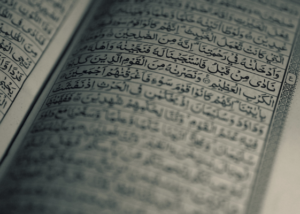Some people say it is Haram to go on Palestine protests because there are people who are sinning present. Is this true?
Quran
Hadith
Islamic Text
بِسْمِ اللَّهِ الرَّحْمَنِ الرَّحِيمِ
In the Name of Allah Most Merciful Most Kind
Short Answer
No, this is not correct. It is not haram to protest alongside non-Muslims and sinners. Rather, attending such protests to help the oppressed is a way of standing up against oppression. There is great reward in standing up against oppression in Islam. As for sin that is present, you must try your best to keep a distance from it. If you do so, then you are not responsible for the actions of others.
Explanation
عَنْ عَبْدِ الرَّحْمَنِ بْنِ عَوْفٍ رَضِيَ اللَّهُ عَنْهُ، قَالَ: قَالَ رَسُولُ اللَّهِ صَلَّى اللهُ عَلَيْهِ وَسَلَّمَ: شَهِدْتُ غُلَامًا مَعَ عُمُومَتِي حِلْفَ الْمُطَيَّبِينَ، فَمَا يَسُرُّنِي أَنَّ لِيَ حُمُرَ النَّعَمِ، وَأَنِّي أَنْكُثُهُ. قال الامام الذهبي: صحيح
Abdul-Rahman bin Awf (May Allah Most High be pleased with him) said: The Messenger of Allah ﷺ said, ‘I witnessed, as a young man, Hilf al-Mutayibeen whilst I was with my uncles. I would not be willing to break it in exchange for red camels.’ (Mustadrak Hakim 2870, Sahih according to Imams Hakim and al-Dhahabi).
The Hadith above was also narrated by: Imam Ahmad in his Musnad (1655, 1656, 1676); Imam al-Bukhari in al-Adab al-Mufrad (567); Ibn Hibban in his Sahih (4373, 4374); and many others. In the narration of Imam al-Tahaawi in Sharh Mushkil al-Aathaar (5971) additional words are narrated.
The Prophet ﷺ said: If I was called to it in Islam I would accept.
Explaining the Hadith
As we see in the authentic Hadith above, the blessed Prophet ﷺ spoke very positively about Hilf al-Mutayibeen. This was a pact with disbelievers to establish justice. This is one of numerous proofs that permit and even encourage Muslims to unite with disbelievers to establish justice.
In Seerah works, Hilf al-Mutayibeen is often called Hilf al-Fudool.
What was Hilf al-Fudool?
It was an agreement or a pact between leading figures in the tribe of Quraysh to unite against injustice. The Prophet ﷺ was present at the pact and took part in it. Although it took place prior to the revelation of the Holy Quran, the Prophet ﷺ praised it after revelation too. Therefore, clarifying that it was a praiseworthy pact.
At the time of the pact, the Quraysh were pagan Arabs engaging in Shirk ( polytheism). Despite this, the Prophet ﷺ took part in it and praised it. Undoubtedly, the pagan Arabs would follow their culture when trying to implement the dictates of the pact. Thus, the actions of the Prophet ﷺ encourage Muslims to establish justice in unity with such people.
The Muslim cannot engage in Haram when establishing justice. However, if non-Muslims are also supporting the cause then they will be left to their practices. We will not force them to adhere to our religion.
Nevertheless, the Muslim must try to distance himself from anything prohibited. For example, if some protesters are playing music then the Muslim will keep a distance. However, it cannot be said that it is inherently haram to protest alongside non-Muslims and sinners.
Classical Hanafi Scholars
قَوْمٌ مِنْ الصُّلَحَاءِ يُرِيدُونَ الْغَزْوَ وَمَعَهُمْ قَوْمٌ مِنْ أَهْلِ الْفَسَادِ يَخْرُجُونَ إلَى الْغَزْوِ وَمَعَهُمْ مَزَامِيرُ، فَإِنْ أَمْكَنَ لِلصُّلَحَاءِ الْخُرُوجُ بِدُونِهِمْ لَا يَخْرُجُونَ مَعَهُمْ وَإِنْ لَمْ يُمْكِنْ الْخُرُوجُ إلَّا مَعَهُمْ يَخْرُجُونَ مَعَهُمْ كَذَا فِي فَتَاوَى قَاضِي خَانْ. (الفتاوى الهندية)
A group of upright people want to go on a military expedition. However, there are corrupt people with them, who bring flutes along. If the righteous can go without them, then they should not go out with them. But if it is not possible to go without them, then they should go with them. As is stated in Fataawa Qadi Khan. (al-Fataawa al-Hindiyah).
قوم من الصلحاء يريدون الغزو ومعهم قوم من أهل الفساد يخرجون إلى الغزو ومعهم مزامير فإن أمكن للصلحاء أن الخروج بدونهم لا يخرجون معهم وإن لم يمكن الخروج إلا معهم يخرجوا معهم وإثم الفساد على المفسدين وللصلحاء أجرهم. (فتاوى قاضيخان)
A group of upright people want to go on a military expedition. However, there are corrupt people with them, who bring flutes along. If the righteous can go without them, then they should not go out with them. But if it is not possible to go without them, then they should go with them. The sin of corruption is upon the corrupt, and the righteous have their reward. (Imam Fakhr al-Deen Hasan bin Mansoor 592H, Fataawa Qadi Khan).
In the Nusoos (texts) above, we find clear examples of Hanafi Imams permitting Muslims to engage in the act of opposing oppression even if some of the people with them do not adhere to the teachings of Islam. This is applicable to the protests being addressed in this question.
Muslims want to oppose oppression, but it will be done in a context where some of those joining the protest are not Muslim and not adhering to Islamic teachings. It will be permitted and even rewarding for Muslims to attend.
Incoherent arguments
Some of the people who oppose protests on the grounds of sin being present, themselves engage in similar activities. For example, some of these brothers attend speakers’ corner. This is a place in Hyde Park (London) where people gather to speak about political, social or religious matters. There is no doubt that an abundance of sin will take place there.
In reality, the sin prevalent at speakers’ corner will be far worse than the protest. People will be promoting all kinds of Kufr (disbelief), immorality and obscenity. Many will insult Islam and our beloved Prophet ﷺ. These are far worse crimes than the playing of musical instruments. Yet, many of those who prohibit protests due to the presence of sin, are regular attendees at speakers’ corner.
Another distinction between a protest and speakers’ corner is that nobody is actually calling to sin at the protest. Whereas people are directly calling to sin and Kufr at speakers’ corner. The incoherence of the argument they make is obvious, but people still follow these strange views. As such, this is a sad result of a sectarian or cultish adherence to one’s group or teachers.
Furthermore, there are so many other examples of incoherent or even hypocritical arguments against the attending of protests. However, I wanted to focus on speakers’ corner since some of the strongest voices against protests are regulars at speakers’ corner.
Conclusion
Attending protests where some people are engaging in sin is permitted. However, the Muslim cannot engage in the sin and must try to keep a distance. Neither can the Muslim encourage such sin. For example, he cannot encourage non-Muslims to bring their musical instruments or religious symbols.
And Allah Most High Knows Best.
–Answered by Shaykh Noorud-deen Rashid (20.02.24)






